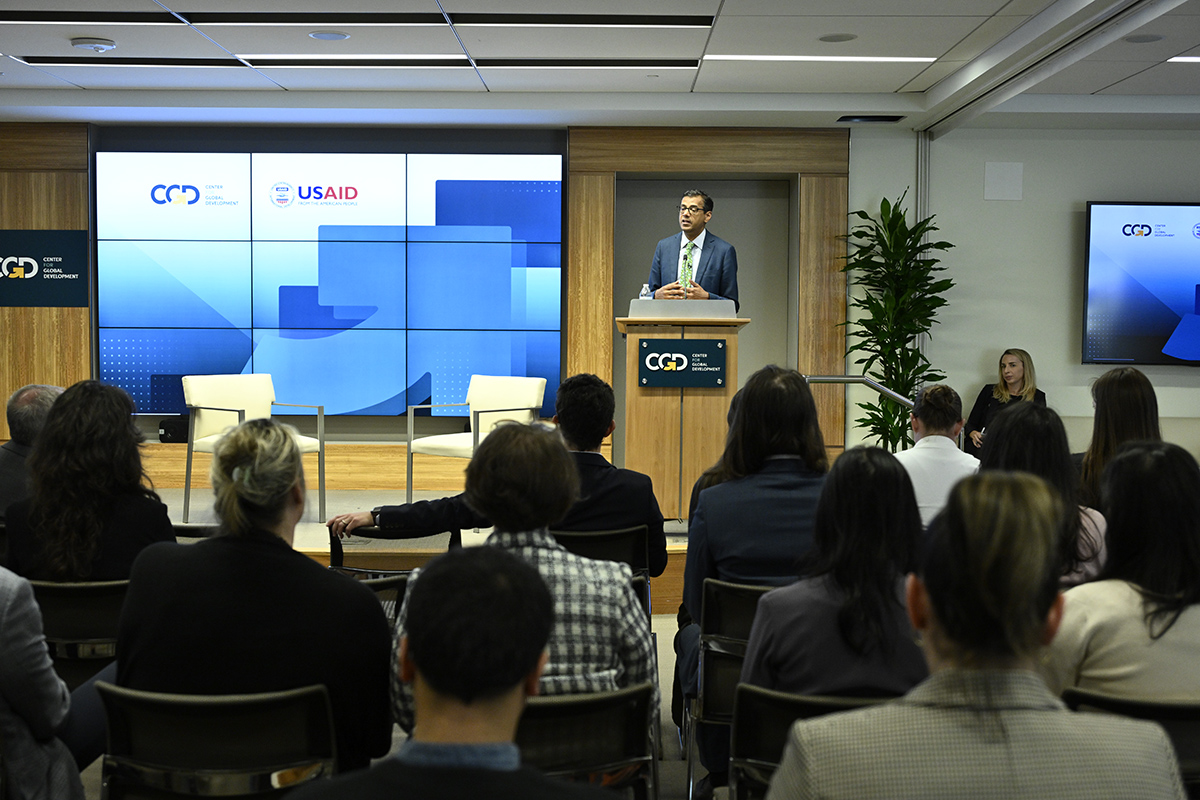The post is part of a series highlighting ongoing analysis of US agencies’ efforts to incorporate country ownership approaches in their development activities. The authors conducted research in El Salvador from February 24 – March 4, 2016.
“If we don’t take a risk, we won’t reap the rewards.” We heard this refrain from a USAID official working in El Salvador to advance USAID’s agenda to promote greater country ownership by cultivating public-private partnerships with local actors. Partnering directly with local entities can pose potential risks to USAID, but in El Salvador the decision to increase local implementation has proved pragmatic and beneficial, as it capitalized on local knowledge and the local private sector.
Under the banner of Local Solutions, USAID set a target to direct 30 percent of program funding to local partners by 2015 as part of the Agency’s 2010 reform agenda. For many Missions this goal remains an aspiration, but in El Salvador the Agency has consistently surpassed the target. In fact, USAID/El Salvador has comfortably cleared 30 percent since 2013, even without any direct partnerships with the government of El Salvador. This is due, at least in part, to the country’s diverse landscape of local organizations with the capacity to invest in and implement USAID projects.

Percent of Mission program funds per year implemented through local entities. Extracted from USAID Forward: Strengthen Local Capacity dataset (May 2016).
Three Distinct Partnership Models
It turns out that USAID/El Salvador draws upon a mix of local and international implementing partners to achieve results. We looked at three USAID projects, and examined the partnership arrangements involved, to understand the potential tradeoffs the Agency must weigh as it considers direct partnership with local organizations.
1. SolucionES: Local Prime Grantee & Local Sub-Grantees

SolucionES is a five-year project that focuses on crime and violence prevention in El Salvador. At $42 million, SolucionES is the largest Global Development Alliance (GDA, USAID’s brand of public-private partnership) in USAID’s history in which every implementing partner is a local organization. USAID is investing $20 million while its local partners are required to leverage an additional $22 million from the private sector.
SolucionES’ implementing partners have been working in El Salvador for decades. USAID even helped to create several of these institutions through initial funding in the 1980s. These organizations are now leaders in shaping El Salvador’s development agenda, showing the payoffs of USAID’s investments in institutional strengthening. USAID has not just spent money in El Salvador; it has increased civil society organizations’ capacity to exist independent of the Agency.
2. Regional Climate Change Program: Local Prime Grantee & International Sub-Grantees

and the sub-grantees are international organizations.
The Regional Climate Change Program (RCCP) provides a platform for coordination and cooperation on climate change mitigation interventions in Central America. CATIE, a regional center focused on management, conservation, and sustainable use of resources, leads implementation. Though it’s based in El Salvador, CATIE has a well-established network of non-governmental and governmental partners with which it works throughout Central America. International sub-contractors bring technical expertise to the project that complements CATIE’s capacity to convene partners around an issue that affects the entire region. Though, from what we heard, international partners were initially apprehensive about CATIE’s ability to manage USAID resources, they’ve come to recognize one another’s comparative advantage in implementation.
3. Alianza Cacao El Salvador: International Prime Grantee & International/Local Sub-Grantees

(sub-grantees) are international organizations. Caritas and
Clusa are local organizations (sub-grantees).
The Alianza Cacao El Salvador is a GDA that aims to improve the incomes of Salvadoran farmers by establishing cacao-based agroforestry systems and strengthening the cacao value chain. Catholic Relief Services (CRS), an international organization, is USAID’s direct partner that contracts to a mix of local and international implementing entities. In speaking to a local cacao cooperative, we learned that USAID may have chosen an international organization because there was a pressing need to disburse resources and not enough time to build the fiduciary capacity of local organizations to manage the award. Local organizations may have the technical expertise to implement, but in some cases they lack the absorptive capacity to manage large grants.
What these Partnerships Tell Us about Tradeoffs
These three partnership models offer a lens through which we can explore the potential risks and rewards that Missions consider in pursuing Local Solutions efforts.
Risks
- Fiduciary. USAID has strict regulations in order to protect US taxpayer dollars from fraud and waste. Missions must undertake an intensive due diligence process to ensure partners’ financial, procurement, and management systems – among other things – are reliable, especially in difficult country contexts. This is likely why USAID chose to partner with CRS to implement Alianza Cacao.
- Programmatic. Because many are first time direct partners, local entities don’t always have a proven track record of achieving results with USAID. In order to transfer management responsibility to a new organization, USAID must embrace a greater tolerance for programmatic risk. Though it’s a first-time direct partner, USAID knew of FEPADE’s reputation for achieving results in other projects, thus mitigating programmatic risk.
- Longer timeline. It often takes significant time and resources for local partners to adopt USAID’s administrative and operational requirements to become a direct partner.
Rewards
- Local knowledge. Local organizations have long-standing relationships with the communities in which they work, enabling greater flexibility to improve projects based on community feedback. CATIE has a presence in several Central American countries, which gives it flexibility to adapt USAID’s regional program to specific country and community needs.
- Cost effectiveness. Local organizations require lower overhead costs than an international organization, which means more of USAID’s dollars can go directly towards project results.
- More resources. As is the case with SolucionES, organizations have access to different networks, including the local private sector – an untapped resource in many countries where USAID works.
- Staying power & sustainability. The Salvadorans within these organizations will be directly affected by the outcomes of the projects they implement and therefore have a greater stake in sustaining results.
What the Example Set in El Salvador Tells Us about USAID’s Broader Effort
Merely funneling money through a local organization doesn’t necessarily lead to better results. USAID must carefully weigh the risks and rewards when choosing a local partner for direct implementation. But when local organizations have the capacity to achieve program outcomes, USAID’s calculation should systematically measure the additional benefits of partnering locally, such as sustainability, cost effectiveness, and increased capacity.
Without evidence to support the linkages between ownership and sustainability, USAID will continue to underestimate the value of its local partnerships. In choosing its implementing mechanism, we encourage USAID to consider how local implementation will affect results at the end of a project as well as 5, 10, and 20 years into the future. By budgeting for ex-post evaluations in project design, USAID will have more opportunities to identify how local ownership contributes to sustainability of results.
Disclaimer
CGD blog posts reflect the views of the authors, drawing on prior research and experience in their areas of expertise. CGD is a nonpartisan, independent organization and does not take institutional positions.





